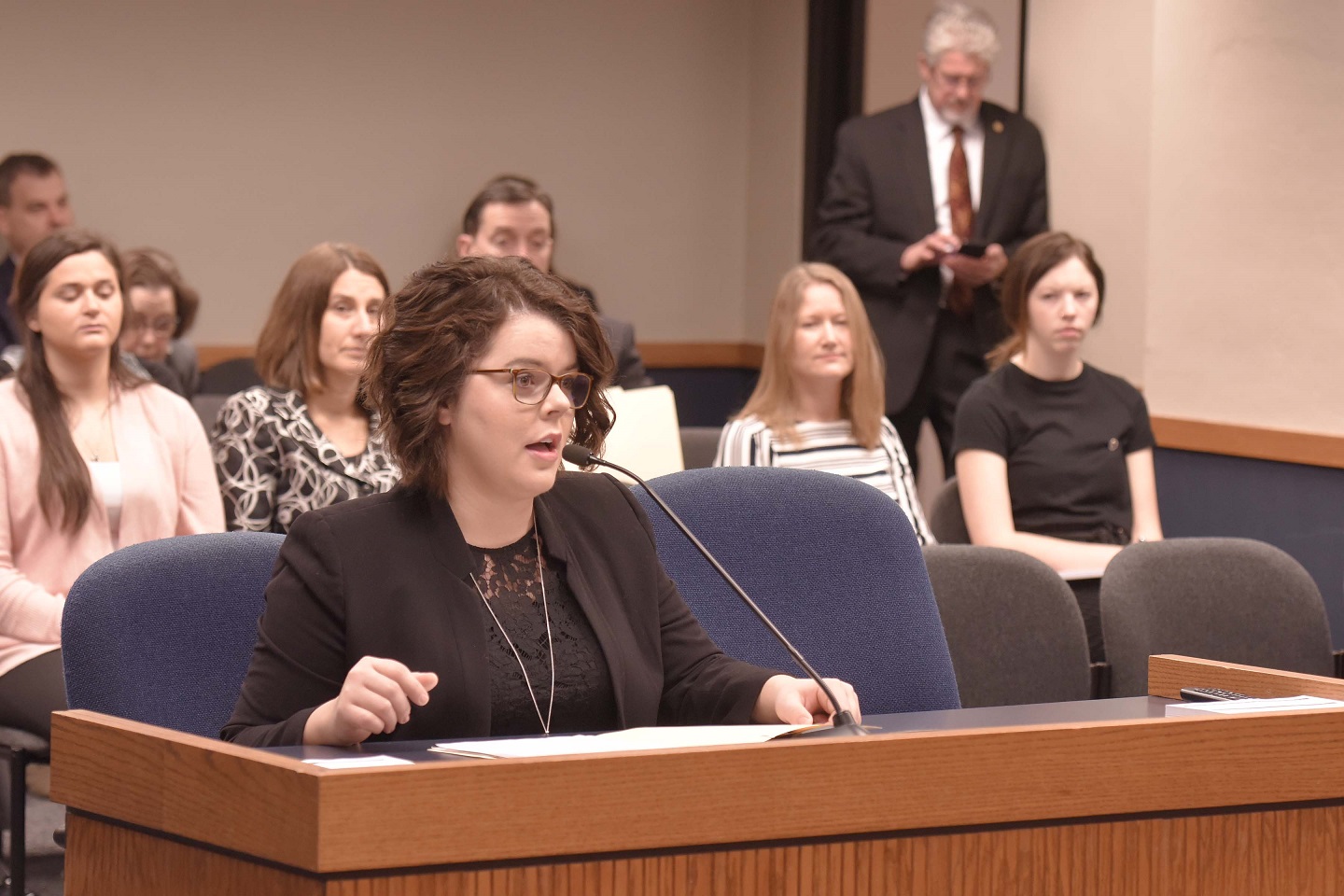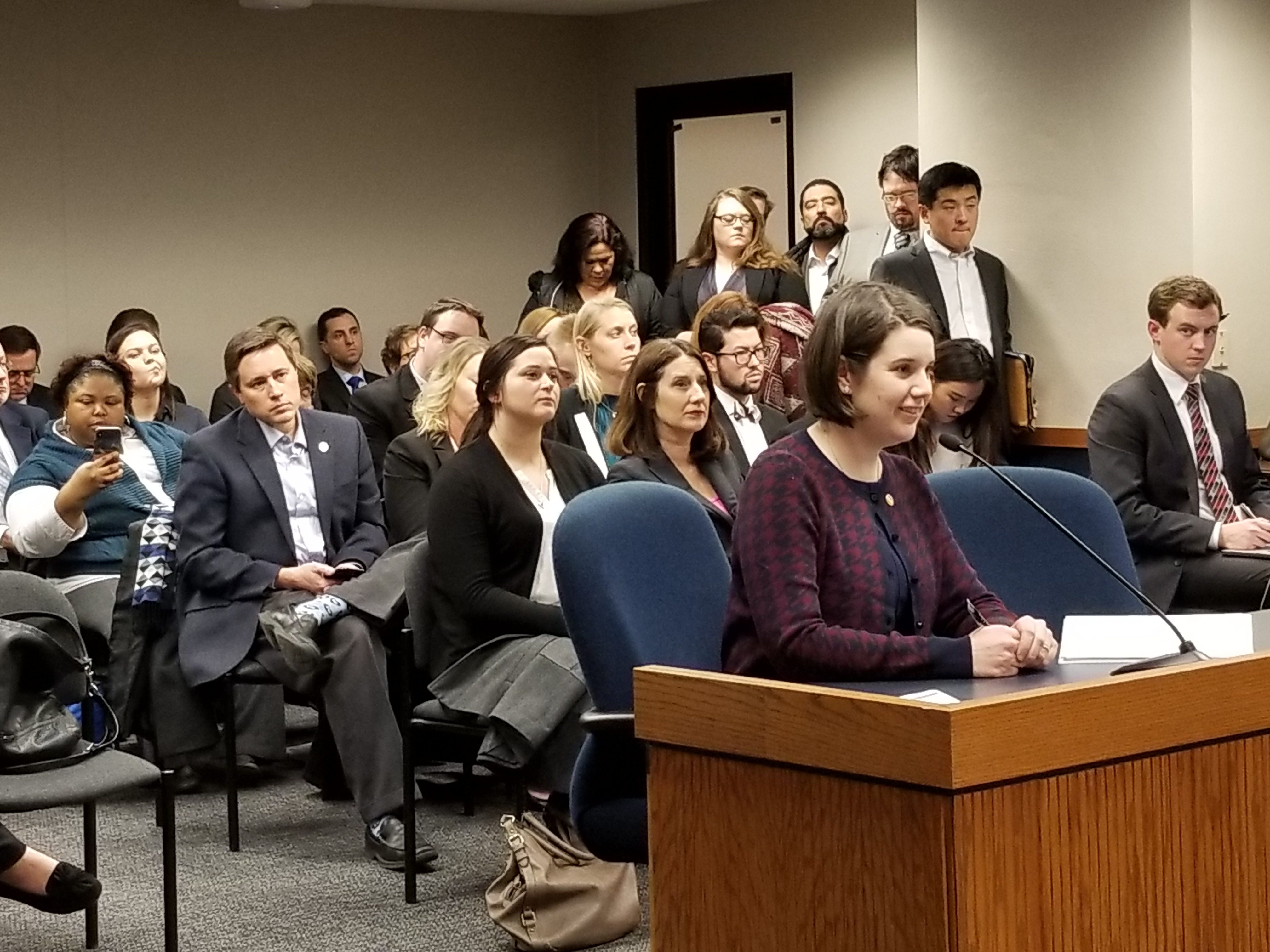Each year hundreds of children’s deaths are investigated by child fatality review panels. Those panels’ meetings, reports, and records are kept confidential, and state officials say that could be costing more children’s lives.

The state House is being asked to make public certain information from those panels so it can be studied to identify trends or areas where prevention efforts can be focused, and to look for ways to change state policies to better protect children.
House Bill 877 would make non-identifiable aggregate data on child fatalities public and give the Director of the Department of Social Services discretion on whether to release identifiable data.
The bill is sponsored by Representative Hannah Kelly (R-Mountain Grove), who said when she was presented with the idea she remembered a child fatality that occurred in her district. A woman who had been struggling with addiction and had only recently been allowed to have her child back in her home rolled over on that child in her sleep and the child suffocated.
Emily van Schenkhof is the Executive Director of the Children’s Trust Fund and a member of child fatality panels at the state and local level. As such, she has reviewed dozens of cases.
“Reviewing these cases – these giant files of the tiny little human beings that deserve lives that were so much better than what they got – changes you as a human being. When you see this type of suffering it changes you, it affects you, it hurts you, and my only response to seeing that sort of suffering is to say, ‘Geeze, we can do better.’” Van Schenkhof told the House Committee on Children and Families. “These situations are going to teach us something and we are going to learn from it and we are going to protect other children … and so this bill is a reflection of how we can get better at looking at the data around child fatalities so that our state can get better at preventing child fatalities.”
Van Schenkhof told the committee she would like to for example, create a map of child fatalities that might reveal a concentration of them in a given part of Missouri. Then efforts to lower child fatalities could target those areas. Under the current confidentiality restrictions on that data she can access the data to create such a map but she can’t share it with anyone, rendering it useless.
Van Schenkhof said it’s also difficult for people in positions such as hers to keep track of what information they learned from investigations, which they can’t talk about and could be in violation of the law if they do; and what information they learned from the news or other public sources.
Kelly Schultz is the Director of the Office of Child Advocate. She also supports the bill, but stressed to lawmakers the importance of making sure that no data could be released that could identify specific cases.
“If there is only one type of fatality that occurs in a county, releasing that information about that one fatality, even if we don’t release a name, would certainly release identifiable information, and that’s not what we’re after,” said Schultz. “What we are after is talking about trends and patterns both at a state level and at a regional level.”
Schultz said rules must be designed so that the Director of DSS can weigh each case.
Though part of the goal is to use aggregate data to scrutinize state policies, Kelly said the effort is not about criticism.
The committee has not voted on the bill.
